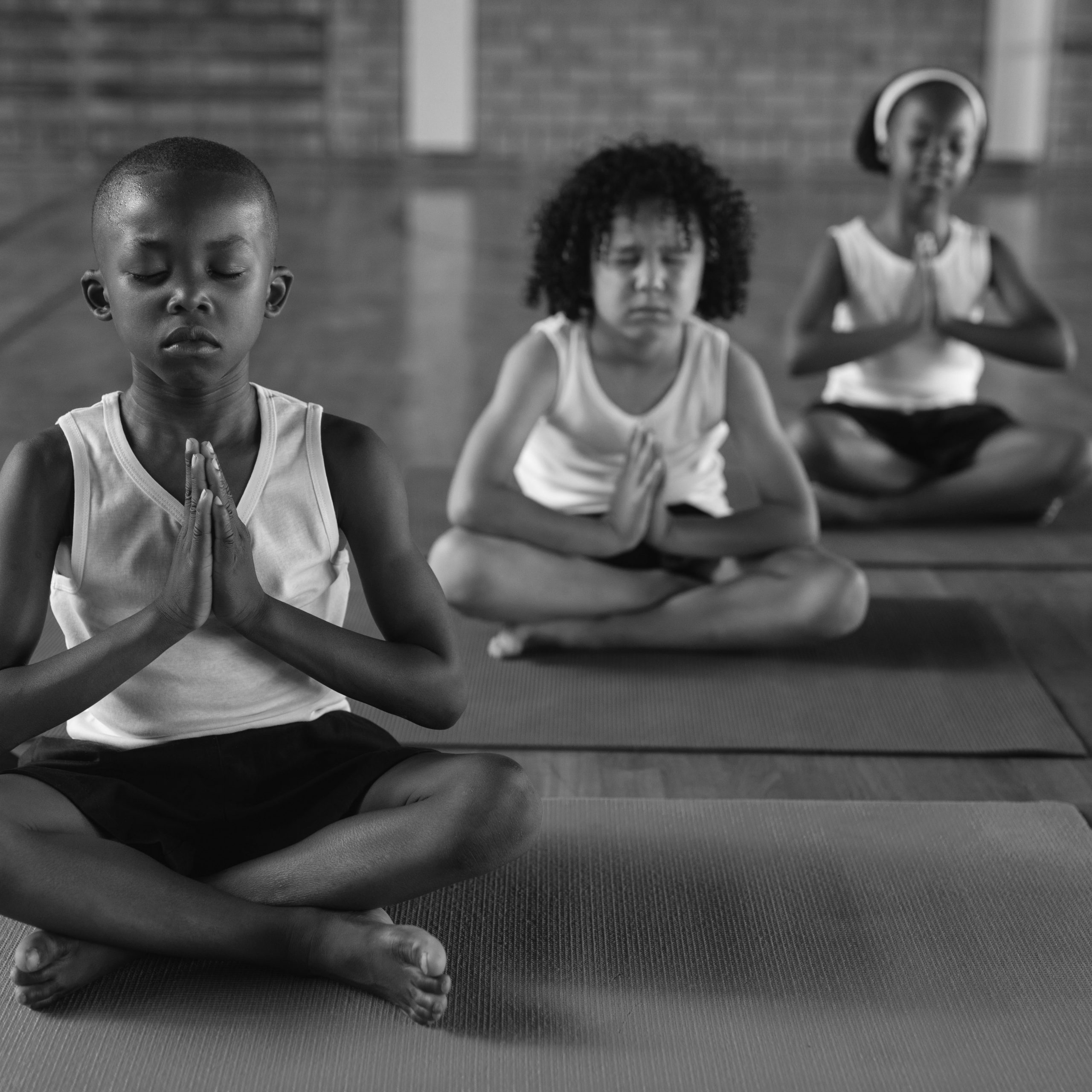Mindfulness

In addition to our popular Mindful Moments pocketbook, we have developed a range of new mindfulness resources that are exclusively available for our PEEC Community.
If you’d like to know more about the science behind mindfulness, scroll down to read more about the research and benefits.
Printables
Mindful Colouring
Explore the research behind this practice and print our set of 30 mindful colouring pages that are suitable for all ages.
Mindful Eating
Encourage your students to engage the five senses in this guided mindful eating exercise.
Mindful Music
Enjoy these playlists designed to encourage a sense of peace and calm in your classrooms.
Mindful Walk Sound Map
This mindfulness-based activity asks students to draw a map of an area where they are going to engage in a mindful walk, and then to walk mindfully through this space, noting any sounds they hear.
Posters
We have created a range of printable mindfulness posters for use in your classroom. Display these in your classroom to enhance the autonomy of your students by supporting their engagement in quiet, discreet practices that help them self-regulate.
Videos
Our animated mindful moments are a great way to introduce, demonstrate or run one of these practices in your classroom. Featuring institute-favourite ‘Nic the Stick’, these videos are bound to become a favourite with your students too!
The Benefits of Mindfulness
Mindfulness can be defined as paying attention to the present moment with intent and purpose.
The use of mindfulness-based interventions (MBIs) in schools is continuing to increase and there is an ever-growing body of research regarding their effectiveness. The research shows that practising mindfulness leads to
improved levels of wellbeing for both the teacher and the student.
One important commonality in the literature is the need for teachers to engage in their own personal mindfulness practices before attempting to teach mindfulness to their students.
In addition, researchers encourage teachers to educate their students regarding the impact of mindfulness on the brain. MBIs carried out with adults have resulted both behavioural changes and physical changes in the brain, after as little as two weeks.
Mindfulness is linked to a number of social, emotional, cognitive and behavioural wellbeing indicators in children and young people. Some of the most commonly reported benefits include:
- improved attention,
- increased levels of self-control and emotional regulation,
- promotion of pro-social behaviour,
- enhanced academic achievement, working memory and metacognition,
- decreased/ prevention of depression, suicidal ideation and thoughts of self-harm,
- reduced anxiety, and
- lowered stress levels.
It is by personally engaging in mindfulness practices that you can best discover their many benefits. After educating the parent, teacher and student communities about these benefits, you could then take the step of adopting a whole-school approach. By embedding mindfulness into your classrooms, you can help to create a flourishing school for all your practitioners.
References:
Albrecht, N.J., Albrecht, P.M. & Cohen, M. (2012). Mindfully Teaching in the Classroom: a Literature Review. Australian Journal of Teacher Education, 37(12), 1-14.
Arthurson, K. (2015). Teaching Mindfulness to Year Sevens as Part of Health and Personal Development. Australian Journal of Teacher Education, 40(5), 26-40.
Bhayee, S., Tomaszewski, P., Lee, D.H., Moffat, G., Pino, L., Moreno, S. & Farb, N.A.S. (2016). Attentional and affective consequences of technology supported mindfulness training: A randomized, active control, efficacy trial. BMC Psychology, 4(60).
Bernay, R., Graham, E., Devcich, D., Rix, G. & Rubie-Davies, C. (2016). Pause, breathe, smile: a mixed-methods study of student well-being following participation in an eight-week, locally developed mindfulness program in three New Zealand schools. Advances in School Mental Health Promotion, 9(2), 90-106.
Black, D.S. & Fernando, R.J. (2014). Mindfulness Training and Classroom Behavior Among Lower-Income and Ethnic Minority Elementary School Children. Journal of Child Family Studies, 23(7), 1242-1246.
Briñol, P., Gascó, M. Petty, R.E. & Horcajo, J. (2013). Treating Thoughts as Material Objects Can Increase or Decrease Their Impact on Evaluation. Psychological Science, 24(1), 41-47.
Britton, W.B., Lepp, N.E., Niles, H.F., Rocha, T., Fisher, N.E. & Gold, J.S. (2014). A randomized controlled pilot trial of classroom-based mindfulness meditation compared to an active control condition in sixth-grade children. Journal of School Psychology, 52(3), 236-278.
Carsley, D., Heath, N.L. & Fajnerova, S. (2015). Effectiveness of a Classroom Mindfulness Coloring Activity for Test Anxiety in Children. Journal of Applied School Psychology, 31(3), 239-255.
Chadwick, J. & Gelbar, N.W. (2016). Mindfulness for Children in Public Schools: Current Research and Developmental Issues to Consider. International Journal of School & Educational Psychology. 4(2), 106-112.
Dariotis, J.K., Cluxton-Keller, F., Mirabal-Beltran, R., Gould, L.F., Greenberg, M.T. & Mendelson, T. (2016). “The Program Affects Me ‘Cause it Gives Away Stress”: Urban Students’ Qualitative Perspectives on Stress and a School-Based Mindful Yoga Intervention. Explore, 12(6), 443-450.
Doidge, N. (2015). The Brain’s Way of Healing. New York: Penguin Books.
Flook, L., Goldberg, S.B., Pinger, L. & Davidson, R.J. (2015). Promoting prosocial behavior and self-regulatory skills in preschool children through a mindfulness-based kindness curriculum. Developmental Psychology, 51(1), 44-51.
Hwang, Y-K. Bartlett, B. Greben, M. & Hand, K. (2017). A systematic review of mindfulness interventions for in-service teachers: A tool to enhance teacher wellbeing and performance. Teaching and Teacher Education, 64, 26-42.
Johnstone, J.M., Roake, C., Sheikh, I., Mole, A., Nigg, J.T. & Oken, B. (2016). School-based mindfulness intervention for stress reduction in adolescents: Design and methodology of an open-label, parallel group, randomized controlled trial. Contemporary Clinical Trials Communications, Dec, 99-104.
Kaunhoven, R.J. & Dorjee, D. (2017). How does mindfulness modulate self-regulation in pre-adolescent children? An integrative neurocognitive review. Neuroscience and Behavioral Reviews, 74(Pt A), 163-184.
Klingberg, T. (2010). Training and plasticity of working memory. Trends in Cognitive Psychology, 14(7), 317-324.
Langer, A.I., Ulloa, V.G., Cangas, G.R., Rojas, G. & Krause, M. (2015). Mindfulness-based interventions in secondary education: a qualitative systematic review. Studies in Psychology, 36(3), 533-570.
Lomas, T., Medina, J.C., Ivtzan, I., Rupprecht, S. & Eiroa-Orosa, F.J. (2017). The impact of mindfulness on the wellbeing and performance of educators: A systematic review of the empirical literature. Teaching and Teacher Education, 61, 132-141.
Lyubomirsky, S. (2007). The How of Happiness: A Scientific Approach to Getting the Life You Want. New York: Penguin Press.
Parker, A. E., Kupersmidt, J. B., Mathis, E. T., Scull, T. M., & Sims, C. (2014). The impact of mindfulness education on elementary school students: Evaluation of the Master Mind Program. Advances in School Mental Health Promotion, 7(3), 184–204.
Quach, D., Jastrowski, K.E. & Alexander, K. (2016). A Randomized Controlled Trial Examining the Effect of Mindfulness Meditation on Working Memory Capacity in Adolescents. Journal of Adolescent Health, 58(5), 489-496.
Renshaw, T.L. & Cook, C.R. (2017). Introduction to the special issue: mindfulness in the schools – historical roots, current status, and future directions. Psychology in the Schools, 54(1), 5-12.
Ricarte, J.J., Ros, L., Latorre, J.M. & Beltrán, M.T. (2015). Mindfulness-Based Intervention in a Rural Primary School: Effects on Attention, Concentration and Mood. International Journal of Cognitive Therapy, 8(3), 258-270.
Schonert-Reichl, K.A., Oberle, E., Lawlor, M.S., Abbott, D., Thomson, K., Oberlander, T.F. & Diamond, A. (2015). Enhancing cognitive and social-emotional development through a simple-to-administer mindfulness-based school program for elementary school children: a randomized controlled trial. Developmental Psychology, 51(1), 52-66.
Sibinga, E.M., Webb, L., Ghazarian, S.R. & Ellen, J.M. (2015). School-Based Mindfulness Instruction: An RCT. Pediatrics, 137(1).
Vickery, C.E. & Dorjee, D. (2016). Mindfulness Training in Primary Schools Decreases Negative Affect and Increases Meta-Cognition in Children. Frontiers in Psychology, 6, 2025.
Volanen, S.M., Lassander, M., Hankonen, N., Santalahti, P., Hintsanen, M., Simonsen, N., Raevuori, A., Mullola, S., Vahlberg, T., But, A. & Suominen, S. (2016). Healthy Learning Mind – A school-based mindfulness and relaxation program: A study protocol for a cluster randomized controlled trial. BMC Psychology, 4(1), 35.
Wisner, B. & Starzec, J. (2016). The Process of Personal Transformation for Adolescents Practicing Mindfulness Skills in an Alternative School Setting. Child and Adolescent Social Work Journal, 33(3), 245-257.
Zenner, C., Herrnleben-Kurz, S. & Walach, H. (2014). Mindfulness-based interventions in schools – a systematic review and meta-analysis. Frontiers in Psychology, 5, 603.




